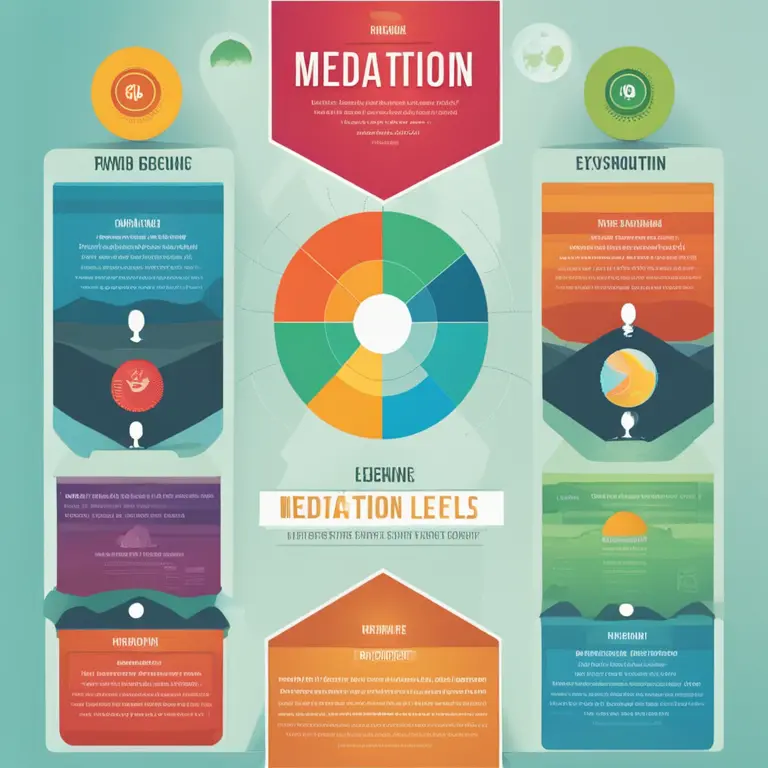
Meditation and Dopamine: A Path to Inner Bliss
Explore how meditation practices can influence dopamine levels in the brain, fostering a sense of wellbeing and happiness.
article by Hina Kurosawa
Meditative Practices and Dopamine Release
In the bustling world we inhabit, finding serenity can often feel like a quest. Meditation, a practice steeped in ancient tradition, has ascended to prominence for its role in promoting mental well-being. Notably, scientific research suggests that meditation can modulate dopamine levels—a neurotransmitter intricately linked to pleasure, motivation, and reward. By understanding how meditation influences dopamine, we can grasp its potential as a tool for cultivating happiness and contentment in our lives.

Dopamine: The Chemical of Reward
To appreciate the convergence of meditation and dopamine, one must first recognize dopamine's pivotal role in the brain's reward system. It is crucial in regulating mood, attention, and emotional responses. The release of dopamine during enjoyable activities reinforces behaviors, encouraging us to repeat them. Intriguingly, meditation has been found to affect this neurotransmitter, thus positioning it as an ally in enhancing one's psychological landscape.

Meditation's Influence on the Brain
Recent studies have illuminated the pathways through which meditation can catalyze dopamine release. When individuals engage in various forms of meditation, such as mindfulness or loving-kindness meditation, there is an uptick in dopamine production in the brain's reward pathways. This increase can manifest in feelings akin to those experienced during moments of joy, underscoring meditation's potential as an avenue towards sustained emotional well-being.

Types of Meditation and Dopamine Effects
Not all meditation practices influence dopamine uniformly. For example, transcendental meditation, characterized by the repetition of a mantra, may prompt a different dopamine response compared to mindfulness-based stress reduction, which emphasizes a non-judgmental awareness of the present moment. Both approaches, however, can foster a conducive environment for dopamine's beneficial effects, highlighting the versatility of meditative practices.

Optimizing Your Meditation Routine
For those seeking to tap into meditation's dopamine-enhancing benefits, consistency is key. Implementing a daily practice, even for short periods, can cumulatively lead to noteworthy shifts in dopamine levels. Moreover, tailoring one's meditation style to personal preferences and goals can augment the likelihood of a lasting and fulfilling practice. Whether it's tranquility or heightened focus you seek, meditation stands as a potent contributor to a harmonized life.
Meditation Beyond Dopamine
While dopamine plays a significant role in the pleasure derived from meditation, it is but one element in a symphony of neurological benefits. Meditation has been associated with the reduction of stress hormones, improvement in brain plasticity, and the strengthening of neural pathways tied to self-regulation and awareness. Consequently, the practice not only elevates dopamine but also fortifies one’s overall mental resilience.
Embracing Meditation in Your Life
As we sail into the horizon of a world where mindfulness becomes ever-more essential, adopting meditation practices can serve as a beacon of light. With scientific advancements corroborating the link between meditation and dopamine, we have but scratched the surface of understanding. By embracing meditation, we invite a panoply of benefits into our lives, riding the waves of dopamine towards a horizon of inner bliss and balance.
Published: 1/24/2024
Modified: 1/24/2024
More predictions
Come back here soon to learn more about yourself and your future


Effective Meditation for Contemporary Life
Discover the meditation methods that best suit the fast pace of contemporary life and how they enhance mental and emotional well-being.


Soothing Sleep-inducing Meditation Techniques
Discover effective sleep-inducing meditation strategies in this enlightening article. Learn to drift into deep, restful slumber with ease.


Meditation Techniques for Individuals With ADHD
Discover effective meditation practices tailored for individuals with ADHD to improve focus, reduce hyperactivity, and foster a sense of calm.